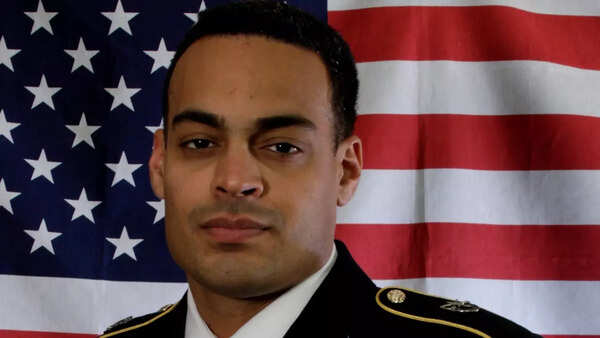Nuclear engineer who chose fields: Randip’s travel to special forces Stanford | Bharat News

At the age of 19, Randip Singh Albani stood at an Emitrak station in NY, when a police officer approached him with an unusual request: “Can I see your passport?” He did not ask for the driver’s license, but a passport. The implication was clear.Years later, Singh would find himself 300 meters from a 250 kg Russian bomb, which left a pit in the size of a house in the Syrian desert. The subsequent Shockwave extended the entire scenario towards him, such as out of a film.There is a story between these two moments that enhances the classification: an atomic engineer who left a promising corporate career to spend 11 years in the army, including several deployment as a special force drug in Iraq and Syria. Now, sitting in Stanford’s Graduate School of Business, Singh represents some rapidly rare: someone who chose the most difficult path to find belonging.Singh said, “I believe in enough things to give my life for him. So I like the army; there are people who believe in reasons.”Singh’s visit began with displacement. Born in the US, but grew up in India after his parents’ divorce, he realized that he says “scene of outsider” from an early age. This perspective gave him shape through his nuclear engineering study at RPI in New York, and eventually his time in General Electric, which he finally chose to leave. The deep issue of Singh was related. Despite being born American, Singh felt like an outsider in his country. Emitrak phenomenon was no different; He tolerated comments like “Hey, Osama, Go back home”.“When you are small, you think it’s something to solve,” he reflects his decision. “I thought it would be related to service, not because I am something patriotic, but purely feel with my internal inspiration as I am in this country.”Singh did not just join the army; Instead, he sought his most demanded roles. He became a special force drug, a condition that requires learning drug in a year – something that takes more than 5 – while maintaining the physical and mental standards of elite war.“They originally combine what an ER surgeon does with some dental, veterinary medicine and internal therapy in a year,” they explain. “You learn to dissect, chest tubes, tooth extracts, and you only get two or three practice efforts. If you can’t correct it in three attempts, you are working. 70% of people fail.”Training philosophy was cruel but effective. As a greeted green beret instructor told Singh: “80% of what you do will not affect the result of the patient. 20% will create your reputation. ,This lesson that you cannot control in accepting that it will prove to be important when Singh had to make triage decisions in the treatment of the victims of ISIS attack. “Three people died,” listeners remember, his voice is calming down.“There is some zodiac sign that you can’t control right now,” they say. “It was a great insight because by then I had the engineering mentality that I could control everything. Accepting that I was very happy.”This perspective shapes how he now evaluates human ability. “Most people compare themselves with masters,” he sees. “They try to learn golf and immediately compare themselves to Tiger Woods. You give your ability exempted because of this.”Instead, Leo gives importance to those who “can break problems and go into crazy expansion.” In the war, it meant to know how many meters a building was away, even though it looked irrelevant. “When someone’s life is on line, I want to know everything.”Perhaps the most striking about Singh is refused to choose between his Indian and American identity. “I see myself as 100% Indian and 100% American,” he says. “I can choose good things from both cultures.”

This dual identity, forged through displacement and tested in war, gives it a unique perspective on belongingness. The teenager who felt that she needs to prove her Americanness through military service, now realizes that it is related “Your own is your own thing and how you think about it.”In Stanford, Singh is preparing for his next chapter: returning to the energy field, working on large infrastructure projects. But the business school provides a different purpose only compared to career preparation.“I lost some faith in the army because I was listed,” he believes. “I didn’t know if I could take a strategic decision. Being here helps me instill confidence that yes, I can do it too.”Their three main values are autonomy, perseverance and integrity, which were forged through experiences that do not face most people. His mother’s decision to quit a failed marriage taught him autonomy. The success of his grandfather as a self-affected machineist for a successful businessman demonstrated firmness. And the disabled standards of the army demanded complete integrity.As he prepares to leave Stanford and return to the construction of infrastructure, which the Power Society, Singh, with him, carried the hard knowledge of someone who chose the most difficult path to find himself. His story challenges comfortable perceptions about patriotic, related, and what it means to serve.“I wanted to see a part of human nature that you can’t see in corporate settings,” he reflects in the years of his army. “This is a very raw form of humanity. This experience was all worth it.”In the rapid dominance world at safe options and risks, Randip Singh stands as a reminder that sometimes leads to a clear understanding of who you are and what you are able to do.




